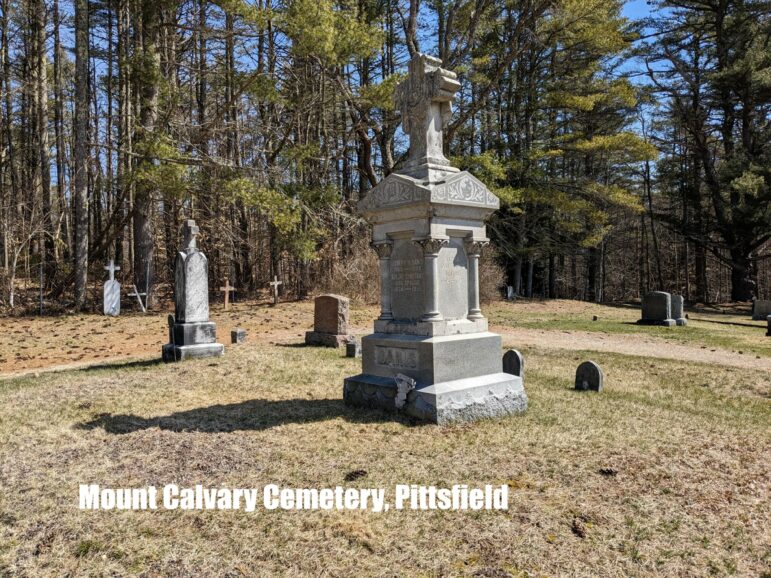By PAULA TRACY, InDepthNH.org
CONCORD – Hockey has been identified as a “high risk” activity likely causing community spread of COVID-19 and the state is taking a two-week “intermission” on all ice rink action, Gov. Chris Sununu said.
This pause in action is on everything from public skating to UNH Hockey.
With five new deaths reported in the state Thursday and cases going up throughout the state, Sununu called closing rinks “a small sacrifice,” to salvage the season.
The suspension in action will offer a chance to clean facilities, test athletes’ parents and officials, and develop new guidance because communities are recognizing that there are six official outbreaks tied to hockey and “things are not getting better,” Sununu said at his Thursday press conference.
The Attorney General has been dealing with hockey academies, said D.J. Bettencourt, the governor’s policy director. He called hockey a “unique challenge” and those same words were echoed by the governor.
“We just want to nip it…hit the reset,” he said.
Dr. Benjamin Chan, the state epidemiologist, said the state has seen “substantial spread by hockey,” with 117 cases connected to eight different outbreaks acquired through hockey. He said there are 23 different New Hampshire organizations and teams involved in these outbreaks with additional connections out of state.
Sununu said he had no control over out-of-state hockey but similar scenarios of hockey outbreaks have been seen in other states.
As to whether other aspects of the state might see a halt in action, the governor said he would take further action on a case-by-case basis to determine what future steps need to be taken to reduce the chance of community spread.
Three of Thursday’s five deaths were at Bedford Hills nursing home where currently 58 residents are sick.
The risk to those communities also comes with increased cases, said Lori Shibinette, commissioner of the Department of Health and Human Services.
Shibinette there is one new at a nursing home in Manchester with seven resident cases and two staff cases. She said a week ago this same facility had everyone tested and no cases.
She said it was indicative of how quickly COVID-19 can spread in a facility such as this.
More than 80 percent of the deaths the state has suffered have been related to residents of long-term care facilities. There are currently four nursing homes with outbreaks.
Because the number of cases is going up in most counties the outside access to elderly residents may become limited, Shibinette noted.
The state has a tiered system tied to the numbers of cases of COVID-19 per 100,000 residents in an area and now many are going backward from phases two and three to phase one. There is compassionate care allowed, more expansive than just hospice but visitors of those folks may expect to see changes.
The psycho-social wellbeing and quality of life have to be balanced, Shibinette said, on the prevalence of the coronavirus to protect the fragile health of people.
Chan said cases are up to 829 in the state from 531 this time last week. Last week the daily positive rate on average in the state was 53 and now it is 73 per 100,000. Still, the test positivity rate remains low at around 1 percent.
Thursday there was one new person hospitalized for a total of 18 current patients and plenty of capacity still with more beds. Sadly, the state’s death toll is mounting with 463 dead from COVID-19 since March.
Chan said we are now experiencing moderate levels of community spread statewide.
“We know how to prevent COVID-19 and have been successful in the past,” he said, urging people to not led down their guard and continue with social distancing, mask-wearing, and washing hands. But most importantly, avoid gathering in groups indoors.
He said hockey is unlike other activities and is a “high-risk activity” which he believes has possibly led to exposures in schools, offices, nursing homes.
More Funding
Sununu announced almost $200 million more in allocations from the federal CARES Act to help schools, Main Street businesses, and the state’s unemployment trust fund, avoiding a potential tax increase on businesses. That leaves still about $100 million as the governor has been able to take lapsed funds from other accounts and put it to work here.
Back in June, Sununu directed $340 million in support to local small businesses with the development of the Main Street fund and now, he is announcing a new round for everyone to apply for with $100 million more available in COVID-19 federal relief.
Sununu said it is very heartening to hear from business owners that this was “a true lifeline” for their businesses which closed because of the pandemic. He announced Main Street Relief. 2.0 and said people could start applying on this Monday and that they would have two weeks to apply “regardless of whether they already received an award if they do have additional unmet needs or missed the previous opportunity.”
People can go until Oct. 30 to apply at goferr.nh.gov
$50M Unemployment
The state had $300 million in the unemployment trust fund before the pandemic.
“At one point we hit 17 percent unemployment,” which drew down the fund, but now unemployment is at about 4 percent.
But the fund as it goes down triggers a tax hike, so to avoid hitting that, Sununu said he is putting $50 million in CARES Act funds into the fund to “create certainty for businesses” that they will not have to pay more into that trust fund in 2021.
$45M Public Schools
The governor’s legislative advisory board has been looking the past few weeks at school needs and is seeing the need start to grow out there. Sununu announced more funding including $35 million to be distributed on a per-pupil basis from the CARES Act. There are fewer than 200,000 students.
Money can be used for chrome books and other things, and the remaining $10 million will be in an emergency fund that can be drawn if they spend on direct costs like PPE and testing.
He also announced $7 million for long-term care facilities for PPE and testing.
Fiscal Picture
June 30 the books closed for the state and instead of being $500 million in the hole as expected during the height of the pandemic, it is now looking at about a $200 million deficit.
“The news is much better than we anticipated,” Sununu said noting the state found savings and efficiencies.
“Our economy is recovering quicker than anyone expected,” he said. He said there is still lots of time to make up a lot of ground.
Coos County
While other parts of the state have higher cases, the governor said Coos should not rest on its laurels.
Rural physical barriers help keep cases low and many of the region’s interactions with people occur outdoors, he noted.
“But to be very clear, Coos is not immune by any means,” he said noting spikes in other rural states like Montana and South Dakota.
Climate Change
Answering questions from IndepthNH.org readers, the governor said there are clearly signs of man-made impacts causing global warming.
“Clearly we have to take steps to do what we can to combat it,” he said, noting he needed to keep his answer brief because the press conference is about the pandemic.





